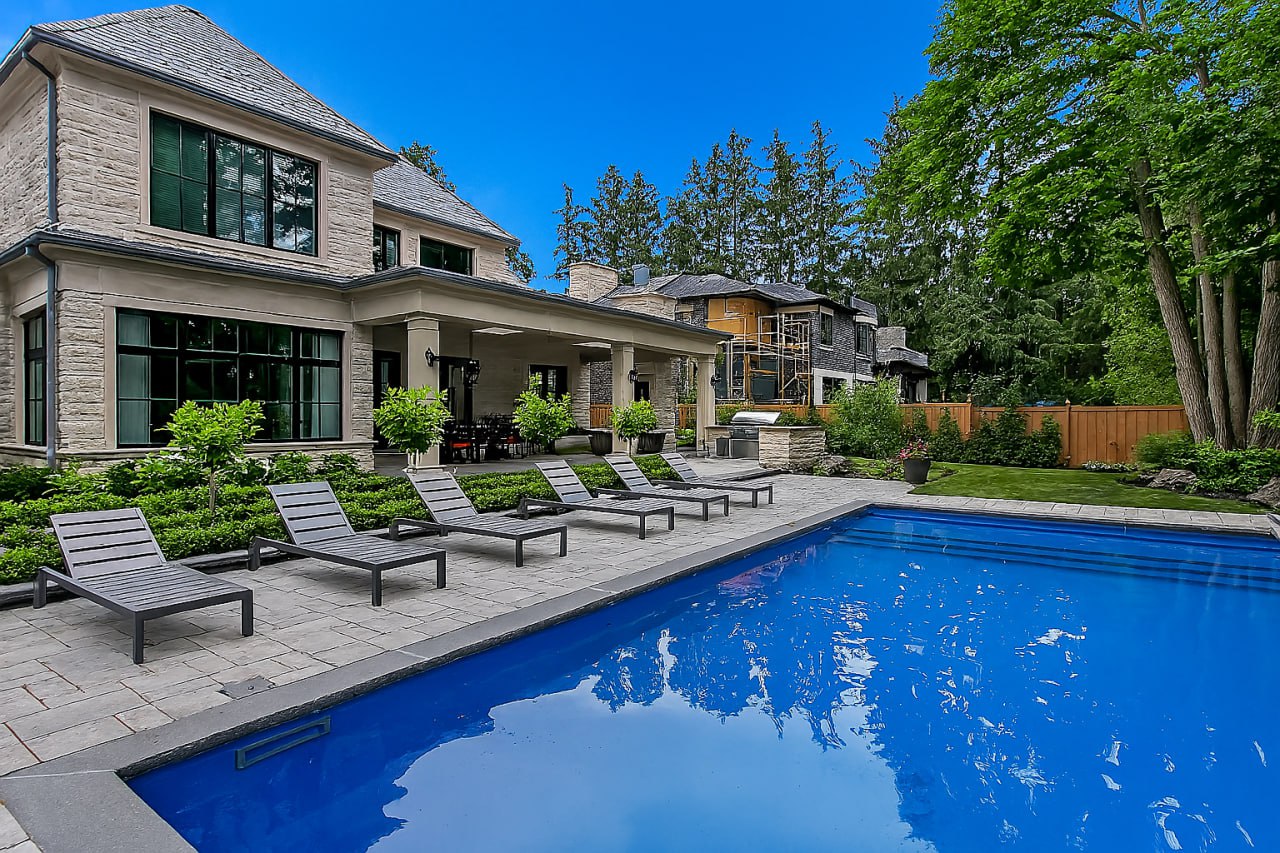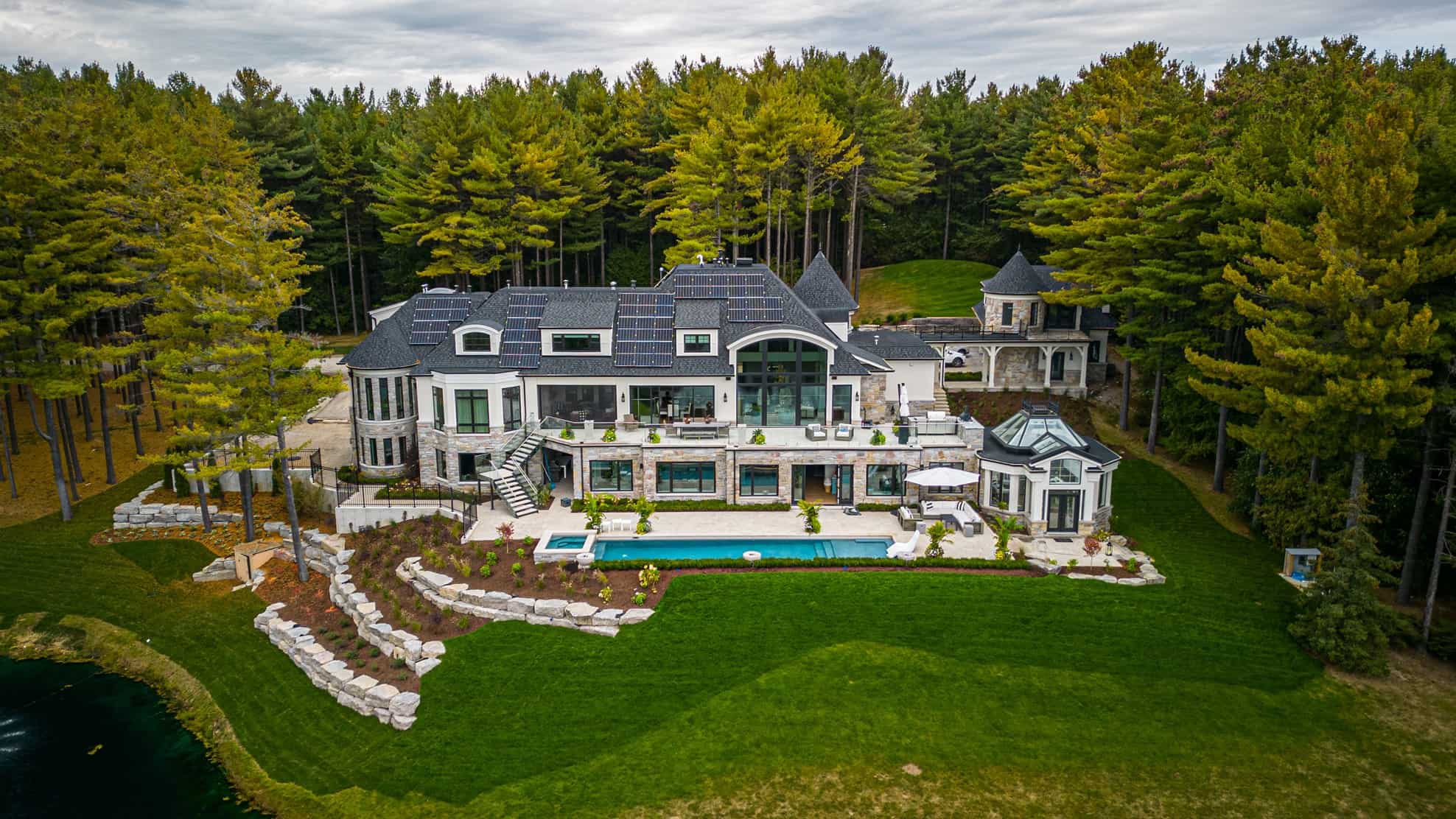We are continuing our discussion from our last newsletter, and here we are picking up on some key points to consider. Checking out and getting referrals for your potential choice of builder…
Talking to friends, family, neighbors, designers, and local real estate agents whom you trust is a good start in your search. Consistent positive referrals speak volumes about a custom home builder. Often, the builder’s sales staff can be quite compelling, but referrals from homeowners who have been through their build, are living in their new homes, and experiencing the builder’s final product, especially their warranty experience, are key. Doing homework may incidentally reveal a list of builders to AVOID and those you will want to talk to.

The internet is a useful tool. When searching, you may see “ads” appear first on the search results page. These are PAID ADS designed to appear higher on the list when a certain search term is used. Being specific in your Google searches and doing your due diligence with some persistence and detective work will yield good results.
Once you have your list, check their ratings. Most people won’t give a negative review unless they are extremely unhappy, so be careful when you uncover a less-than-stellar review. With SEO marketing campaigns and paid ads, the first few on the search list may or may not be the best. Again, your sleuth work will pay off.
Using your research.
The fun begins. Once you have sifted through the available field of eligible custom home builders, you’ll come to a shortlist. It’s time to get to the punch with the three best candidates and reach out to them via their website and/or phone to ask for further information and, if you are ready, a sit-down consultation.

Time to reach out.
Your goal is to gauge each custom home builder’s values and philosophy, experience, history, breadth, depth of the portfolio, strength of team members, level of quality, organizational ability, communication abilities, and industry certifications and awards. Memberships in associations can also give you an idea of the builder’s commitment to their home-building craft and professionalism.
- Either call the custom home builder’s office or submit the contact form on their website. The contact and correspondence that follows, along with their responsiveness, will give you an inkling of their professionalism and help.
Talk with your 3 best picks.
This will take an investment of time and effort but will yield dividends in the end. A face-to-face meeting or video conference with each builder, as well as a visit to a completed home and current job site with them, where you can see their work up close, will paint a picture of their organization. Often, a job site holds clues about how organized the builder is.
A well-organized and tidy site speaks volumes about the custom home builder’s approach and is key to great end results. As you will be “joined at the hip” to your builder for quite some months during the build, having a comfort level is key to the process being smooth.
When you meet face to face, you will be able to get a clearer understanding of their:
- Organization, effectiveness, and reporting systems and processes.
- Team and relevant experience.
- Communication style and approach of the builder and their team.
The site visit will give more clarity to the following:
- Organization, job site cleanliness, and safety measures.
- Construction details and finishes.
- Fine finishing presentation.
- The builder’s attitude and approach to their projects.
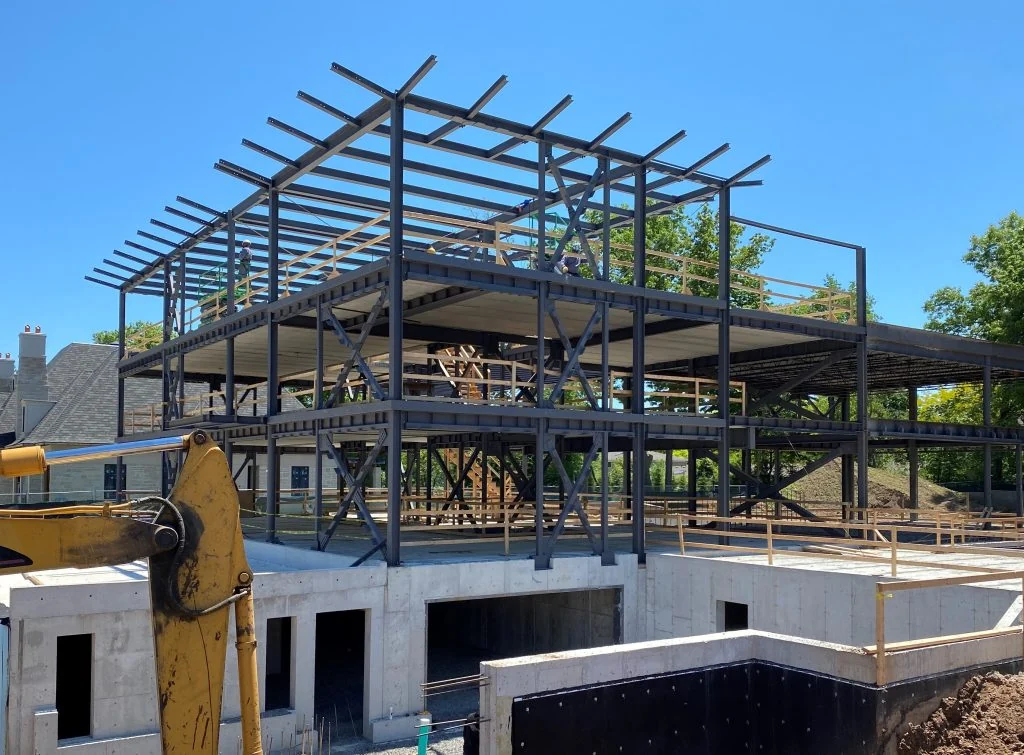
Below are some suggested questions you may choose to ask the potential custom home builders:
Describe how you work and collaborate with the architect and interior designer.
A custom home builder who can work in a team environment, and provide leadership in a collaborative partnership with your architect and interior designer, is essential. This will help expedite the process and minimize schedule delays and extra costs. How they approach relationships with your design team will give you a clue about their communication style.
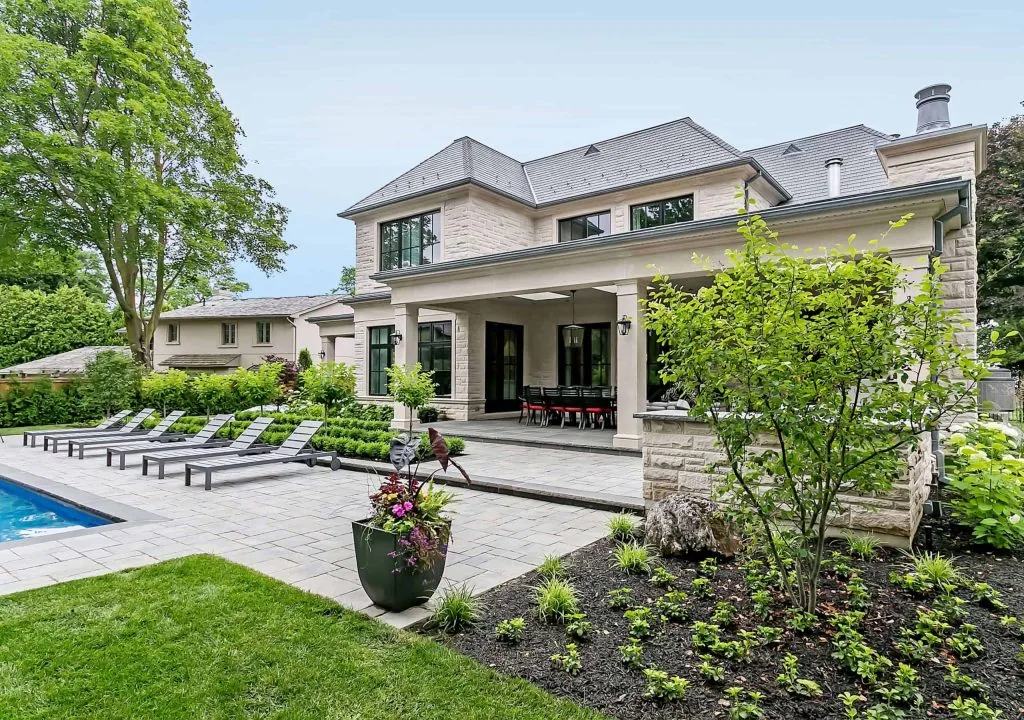
How many homes of similar size, quality, and style have you built?
This ranks high on the list, as each style of home presents unique challenges. Feeling confident that your project isn’t a practice run and that your builder won’t be trying something new on your project but instead will be applying a vast knowledge of past experiences from similar homes they’ve built in the past assures you that you can expect great results. Having said that a builder with a long track record can flex to different styles as the fundamentals are similar in every build. Having a builder with a good inventory of homes under their belt is key. If you had a modern home in mind and you are interviewing a young company the combination of not much experience along with the challenges of a modern build can prove very taxing for the builder and again you don’t ant to be a “learning” experience for them.
What’s the approach to the budgeting process, and how do you ensure your budgets are accurate?
This is very important! Confirming that the builder’s estimating process is extremely thorough is crucial. Their preliminary draft budget will be based largely on historically known costs and market pricing. You want to feel confident in their custom home-building experience and expertise. Their detailed budget (completed after drawings are detailed carefully and specs are finalized) will largely be based on tenders from suppliers and subcontractors in the custom home builder’s network.
You’ll want to ensure that fair bids will be secured from high-quality subcontractors and that those bids will be based on a comprehensive scope of work. Also knowing that the builder’s team has a tight budget process, will help in minimizing unforeseen extra costs. Ask the builder for a historical track record on sticking to the budget – what is their normal variance from the original budget to actual final costs?
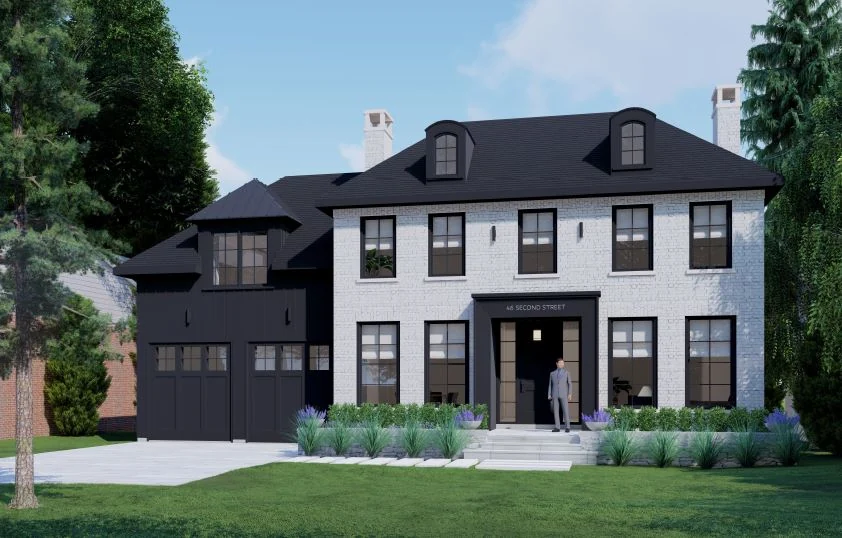
How long does it take for you to produce an estimate for my custom home?
A preliminary broad brush budget may take as little as a week, and a detailed budget, depending on the general busyness in the industry, can take as long as four weeks. A professional custom home builder will explain the process, the timelines involved, and whether the budgeting will take longer. You may have a particularly complicated design or a large home, which would understandably take longer to estimate. If, at this stage, the builder is struggling to assign resources to your project, it may mean they are too busy. Be sure your custom home builder has the “bandwidth” to give proper attention to your project.
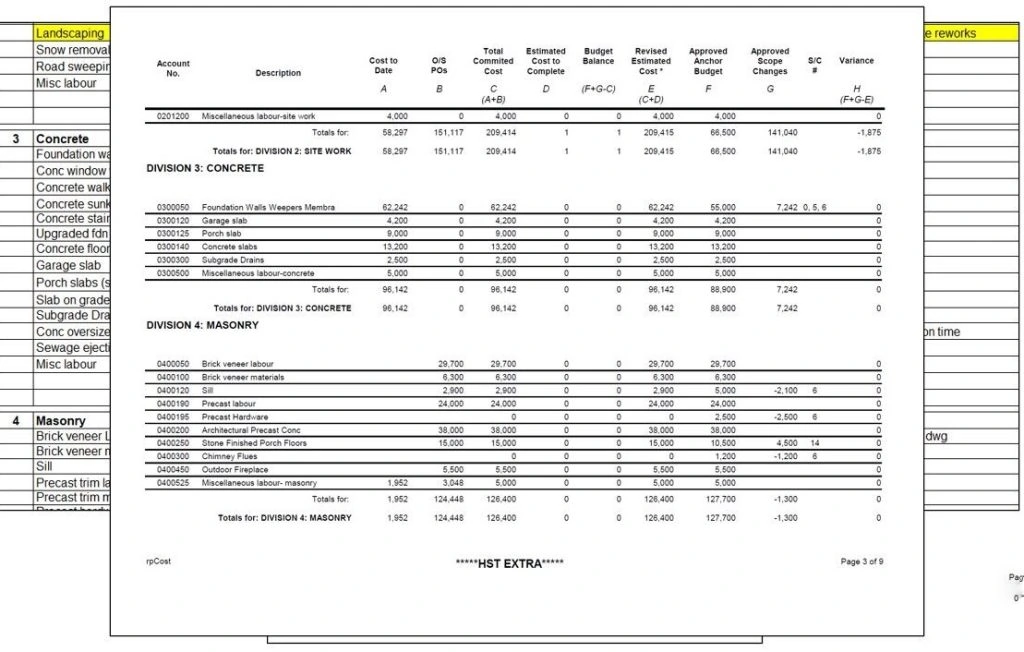
How does the builder charge for pre-construction services?
High-end custom home builders who do a thorough job during the pre-construction phase spend a lot of time and many hours of work that go into the costing and estimates in this phase. The best builders will spend hours poring over architectural and structural plans to value engineer, review details, and suggest design modifications that could save you money and vastly improve your home.
They will spend many hours calling in scrutinizing dozens of tenders from their trades to put together a thorough and accurate budget. With this time investment comes a price tag… but the price tag will pay dividends in savings down the road!
IF THEY ARE PROMISING YOU A BUDGET FOR FREE, it most likely be at best a “guesstimate” and won’t be very accurate or reliable. Although it’s a temptation, it’s important not to fall for a “bait and switch,” as a thoroughly completed budget is essential at this point to enable you to make sure you have the ability to allocate the appropriate amount of funds for building your new home.
Typically, professional builders ask to be compensated for their pre-construction budgetting services. Remember, a “free budget” will not be very accurate. With a fair pre-construction arrangement, you, as the homeowner, will have an accurate budget that you can use as a solid foundation for the financial planning of your dream custom home. The important thing is that you feel comfortable with the fee the builder asks for and are clear on what services they provide in their role in the pre-construction process.


